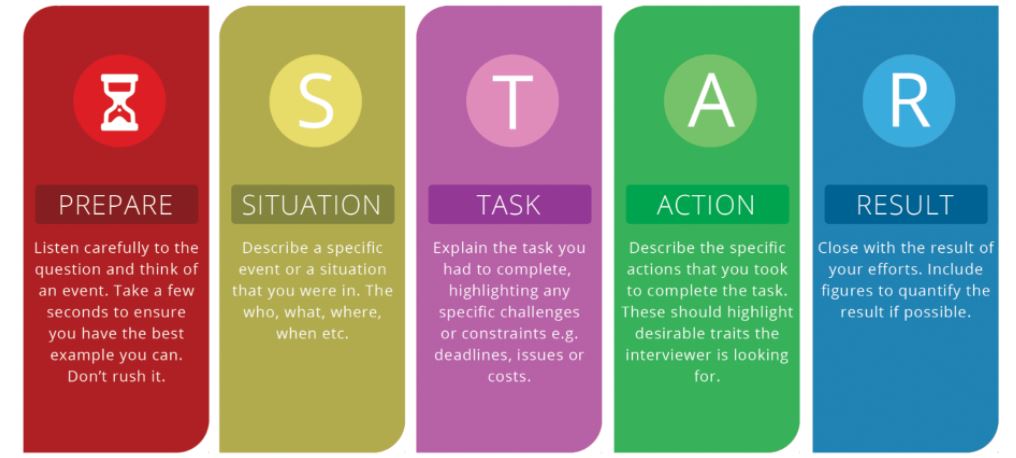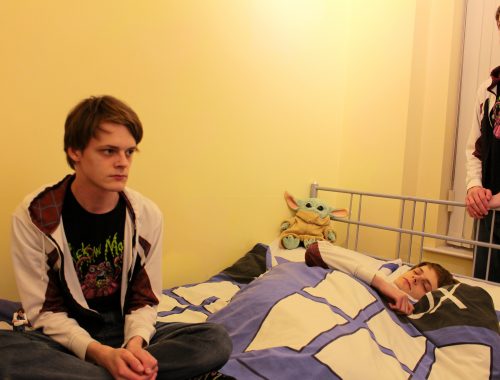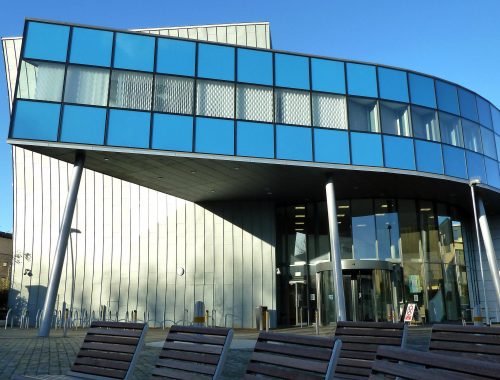Finding a Work Placement: How Hard Can it Be?
In January 2022 I will begin my work placement with Belfast based production company Strident Media. Securing this placement was a challenging yet rewarding process that required me to “sell myself” to prospective employers. In this blog post I will critically analyse and reflect on this journey of finding a placement during the summer of 2021. I will focus on the various aspects involved, from finding and getting in touch with potential companies all the way through to the interview phase with Strident Media.
I will use Gibbs reflective cycle model (1988), as shown in Figure 1, as my model of reflection to provide the overall structure for this analysis. This will allow me to understand how I performed at these various stages both positively and negatively, and will hopefully allow me to look beyond the work placement process itself, and provide me with a deeper understanding of the types of scenarios that I struggle with, and the changes that I can implement to be better prepared in the future.
Reflective practice is important as it allows us to “Come to a deeper understanding of what has happened and therefore develop our own theories or concepts about it. In other words we transform our understanding of that experience and see it differently“
(Jasper 2013: 4)

Finding Potential Placement Companies
Description and Feelings: I started the process of contacting suitable companies at the beginning of the summer, and initially struggled to gain any progress. Some companies simply said they couldn’t offer placements due to the current situation with the pandemic, whilst others didn’t reply to my email requests at all. I was beginning to get disheartened and started to inwardly doubt and question myself due to the lack of relevant experience that I could offer any company through my CV. Fortunately this changed when one of my lecturers suggested getting in contact with production company Strident Media- who happen to make content based on areas that I am extremely interested in. I sent through an introductory email along with a copy of my CV to the company, and thankfully they quickly sent me a response and setup an interview date.
Evaluation and Analysis: The process of finding a placement company exposed a personal weakness of mine, which is an overall fear of failure, and a fear of “not being good enough” for the job. I took it too personally when companies didn’t respond to me, or turned me down, I felt as if it was a reflection on my lack of experience in the field, rather than just accepting that in a lot cases companies can’t always provide placements. I found it difficult to get over these rejections, and it sometimes took me days to even try and find another company to get in contact with, because I let the negative effects of being turned down linger for too long in my consciousness.
Conclusion and Action Plan: If I had to go through this process again, I would force myself to be more proactive in my methods of finding a placement company. I would try and not let the fear of rejection cripple me from making contact with potential employers. I also would like to try other ways of finding companies (not just relying on email requests). Luckily, I have a few different contacts in the field of production due to my degree pathway. I feel it is important to network and speak with people that may have contacts with employers in the sector, that may be willing to give me a chance. This networking may be a more realistic way of establishing communication rather than relying on “random” emails to different companies.
The Interview Phase
Description and Feelings: My interview with Strident Media took place over Zoom, and I had roughly two weeks notice beforehand to prepare. I was extremely nervous in the days before the interview, and I tried to run through every possible question that could be asked of me. During the first few minutes of the interview I was very self-conscious of how I was communicating, but as time went on I gained some confidence and treated it more like a conversation. Inevitably, some questions were asked that I was not prepared for, and I answered them to the best of my ability.
Evaluation and Analysis: Two weeks after the interview, I was informed that I had successfully secured the placement with Strident Media. I think the biggest reason that my interview went well, was because I spent a lot of time researching the company, and watching programmes that they produced in the past. This knowledge came in extremely useful in the interview, as a lot of questions were based around content creation, and my own analysis of how I would change, or attempt to improve certain elements of programming that the company created.
“While you may be thinking that the very fact that you have chosen to study media at university indicates your enthusiasm for the subject, you still need to convey this enthusiasm. Make sure that you have an in-depth knowledge of something which excites you and be willing to talk about it with some passion”
(Gregory 2008: 31)

Conclusion and Action Plan: In interview scenarios in the future, one thing that I need to work on are my speech patterns. When I’m apprehensive I have a tendency to speak extremely quickly, and overuse words such as “like”. I think this can inhibit my ability to clearly communicate what I want to get across in my answers, which may be viewed as unprofessional by prospective employers. I also don’t give myself the chance to fully digest the question I’ve been asked, as I tend to immediately rush to answer the question. If I can combine an improved level of verbal communication during the interview, along with a high level of preparation, I believe I will be much better equipped to showcase myself better to employers in the future.
“Good verbal communication skills enable you to process incoming information accurately and also to present outgoing information persuasively and appropriately so that it is understood and accepted.”
(Yate 2017: 17)
References
Fig 1. Jasper, Melaine. “Gibbs’s Reflective Cycle.” Beginning Reflective Practice , 2013, https://www.vlebooks.com/Vleweb/Product/Index/496302?page=0. Accessed 22 Nov. 2021.
Fig 2. “Interviewing Skills.” William Paterson University, https://www.wpunj.edu/career-center/students/interviewing-skills.
Gibbs, Graham. Learning by Doing: A Guide to Teaching and Learning Methods. FEU, 1988.
Gregory, Georgina, et al. Careers in Media and Film : The Essential Guide, SAGE Publications, 2008. ProQuest Ebook Central, http://ebookcentral.proquest.com/lib/qub/detail.action?docID=420885.
Created from qub on 2021-11-19 16:37:58.
Jasper, Melanie. Beginning Reflective Practice. Second edition., Cengage Learning EMEA, 2013. EBSCOhost, search.ebscohost.com/login.aspx?direct=true&db=cat02616a&AN=qub.b22073711&site=eds-live&scope=site.
“Star Method for Interviewing and Feedback.” DDI, https://www.ddiworld.com/solutions/behavioral-interviewing/star-method.
Yate, Martin John. Great Answers to Tough Interview Questions. KoganPage, 2017.
You May Also Like

AAAH or (Why Tom sucks at selling himself)
25 November 2021
Feast vs Famine
26 November 2021




